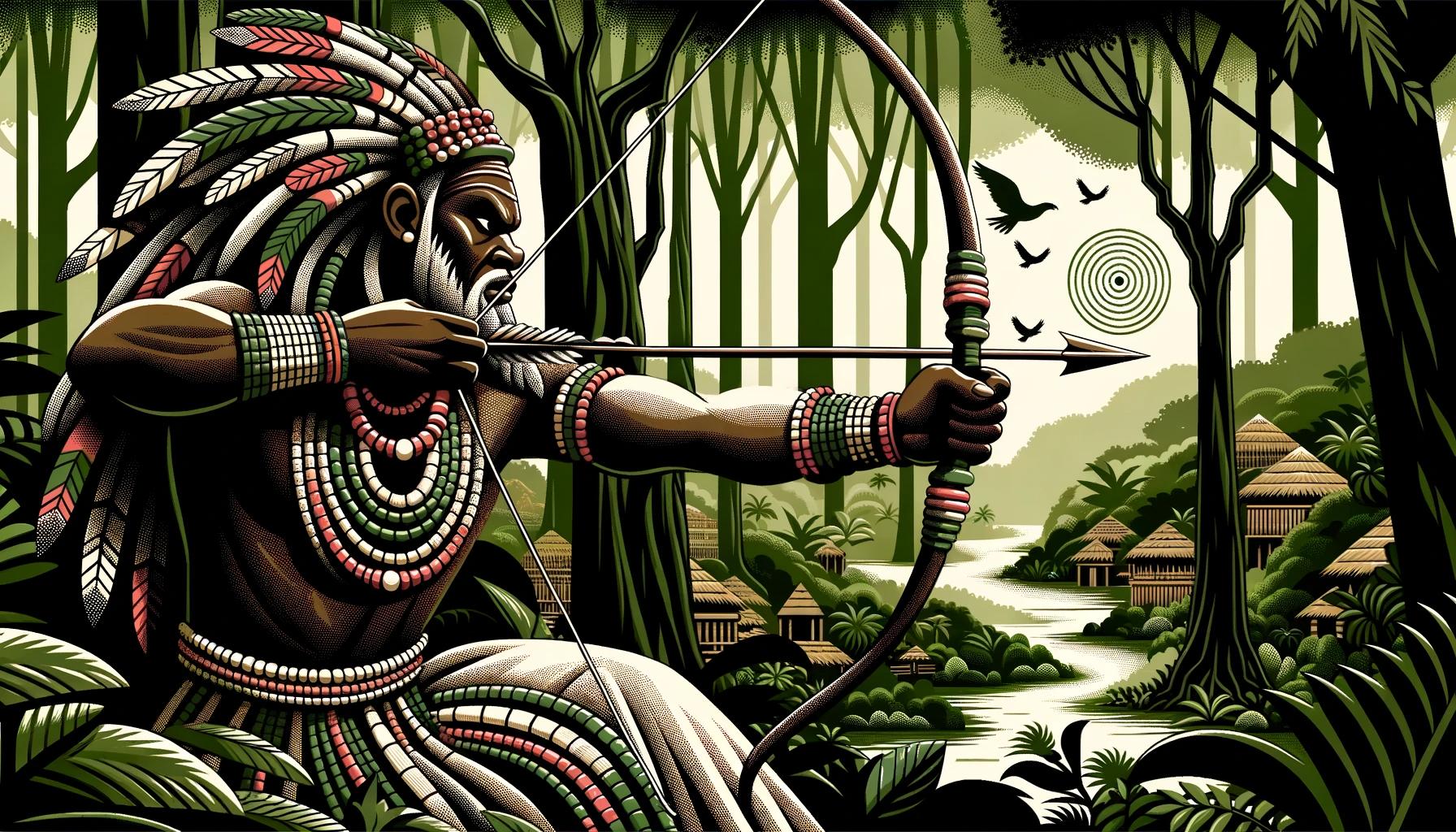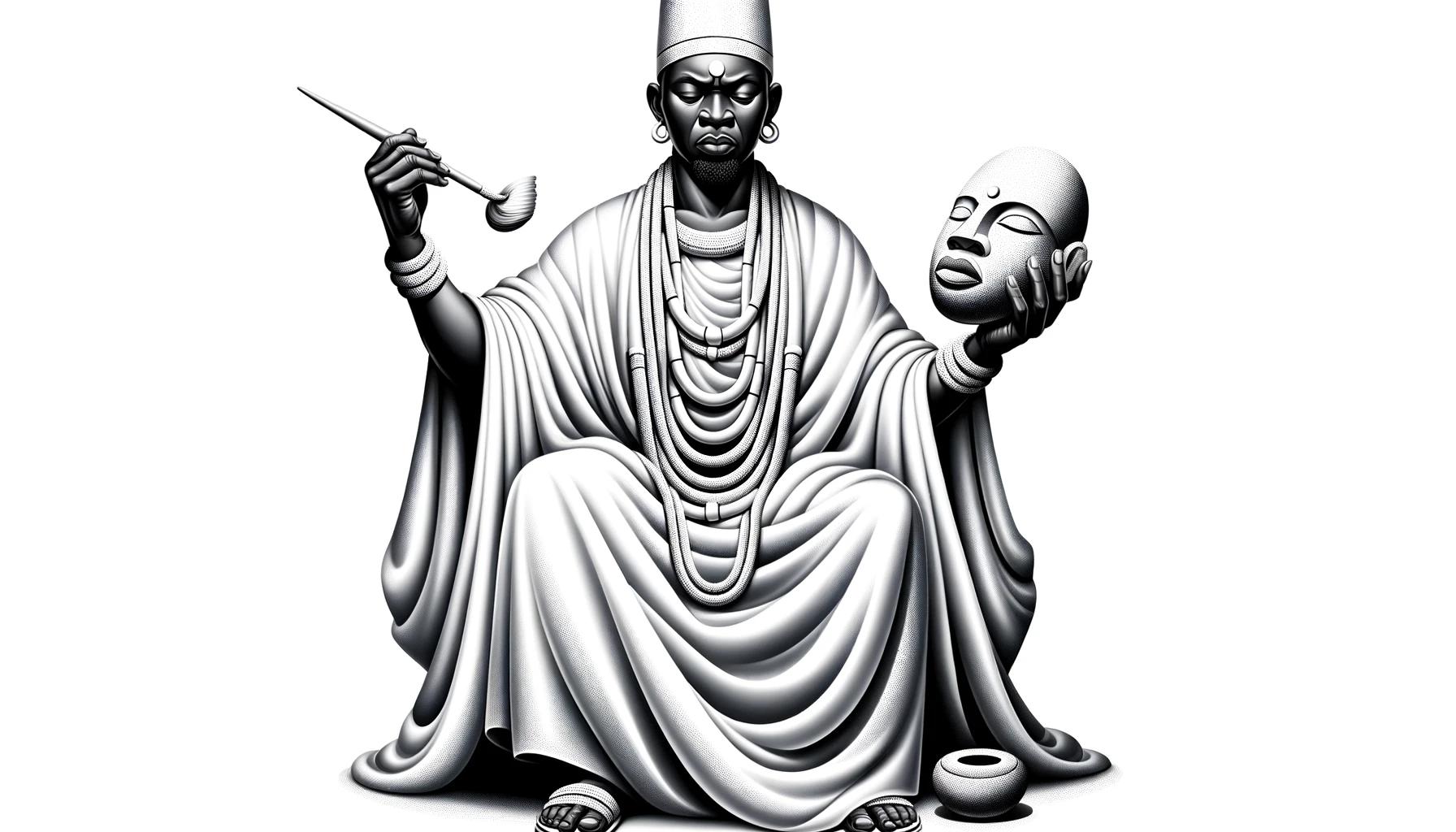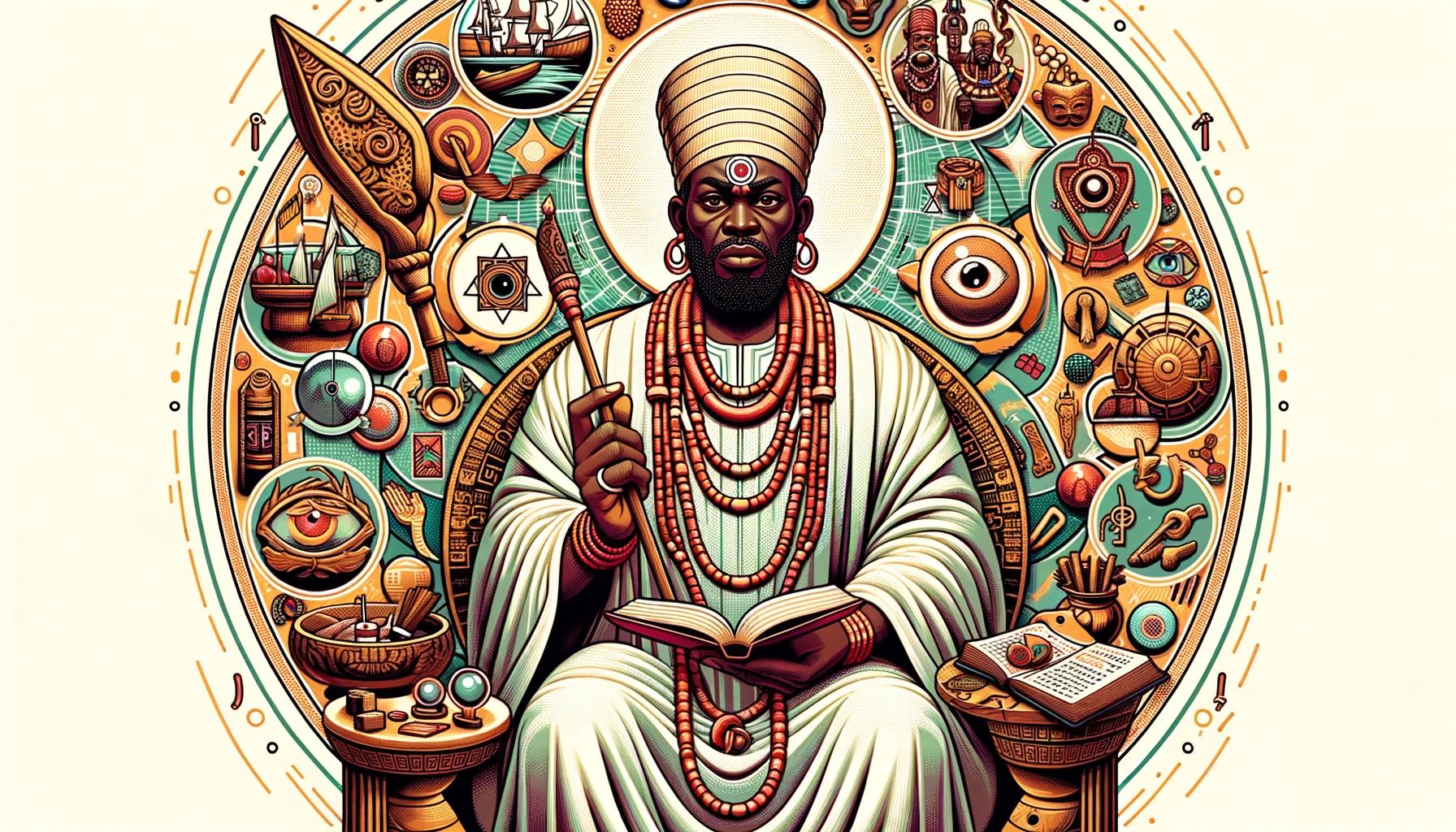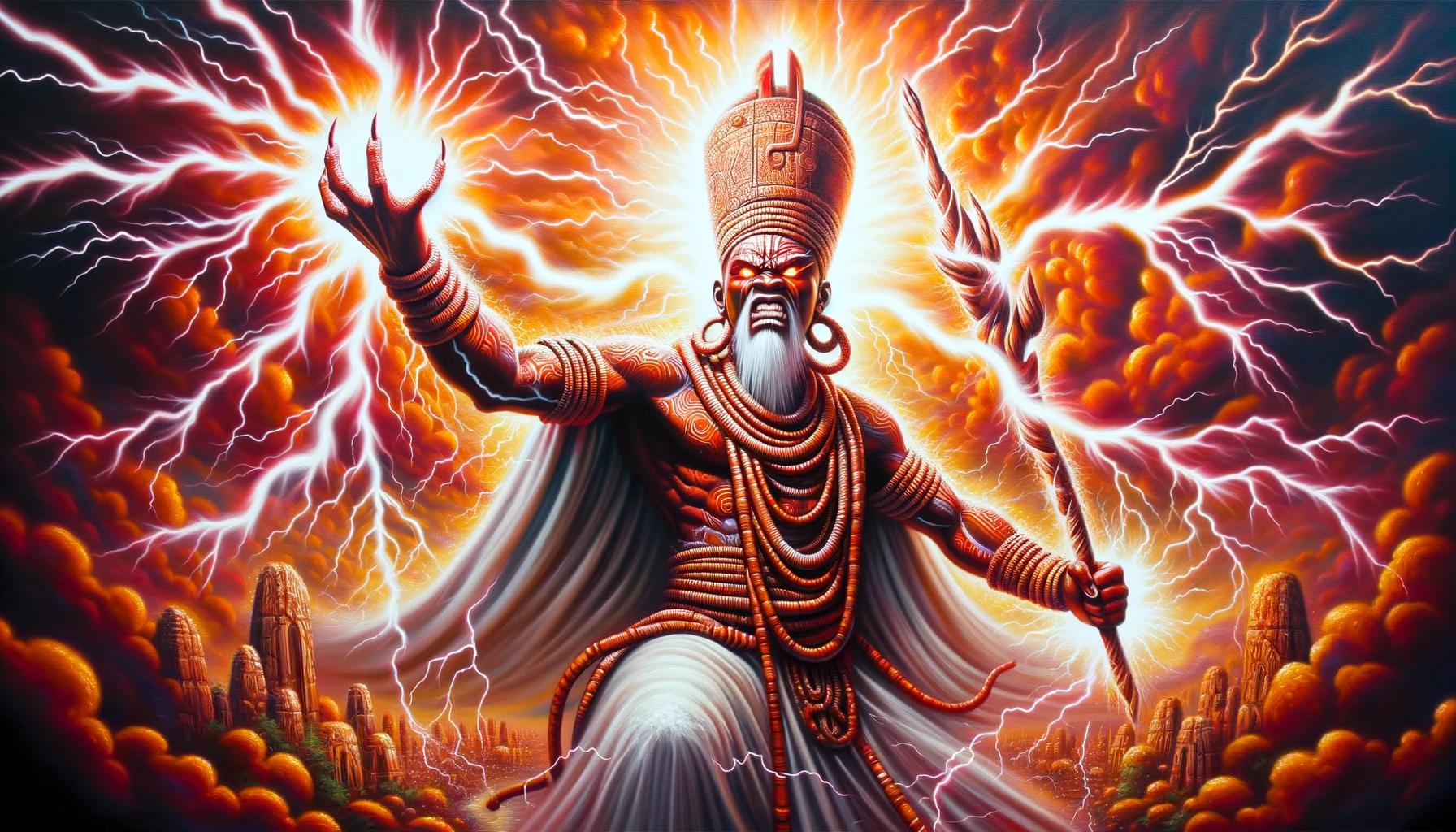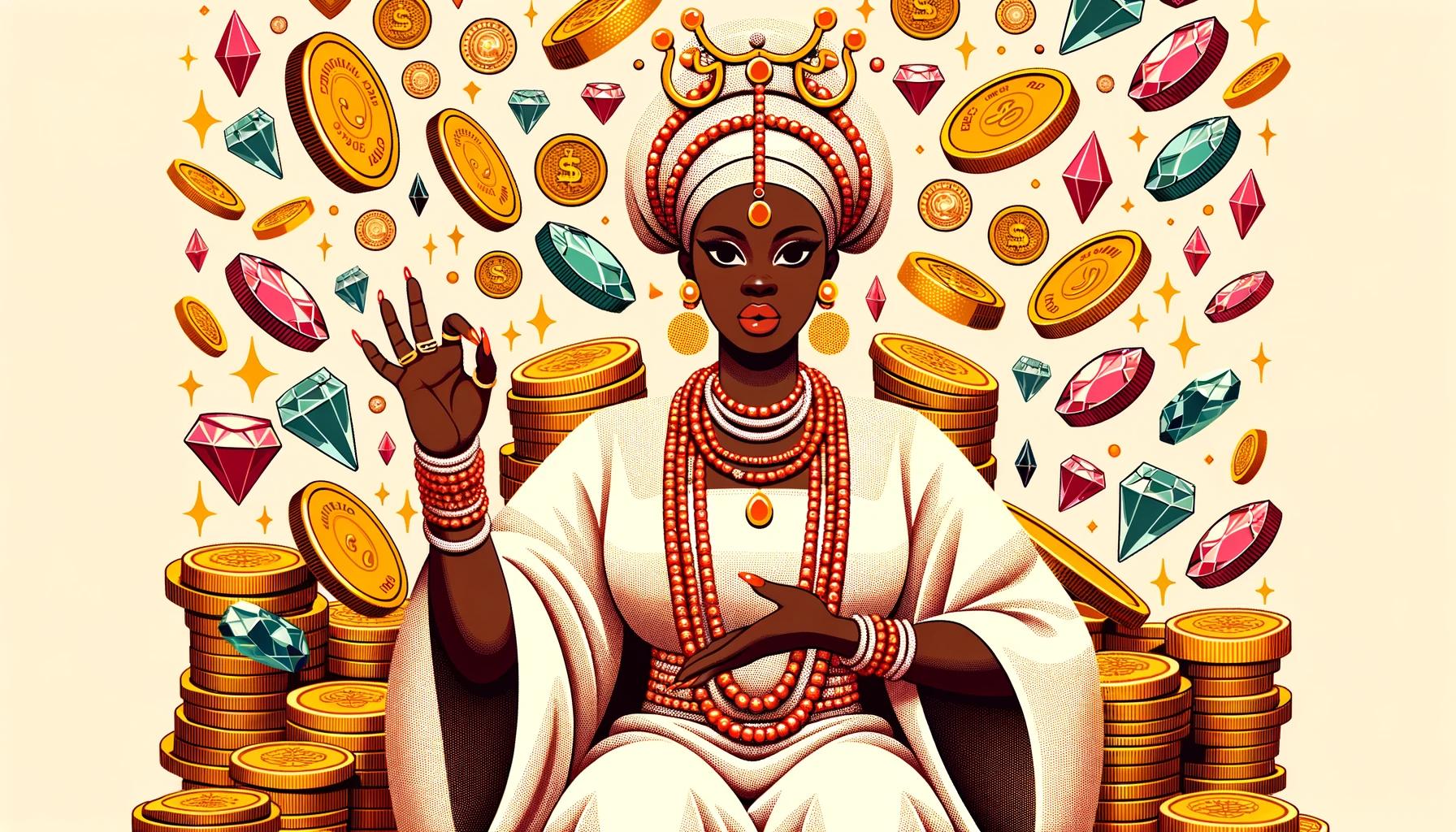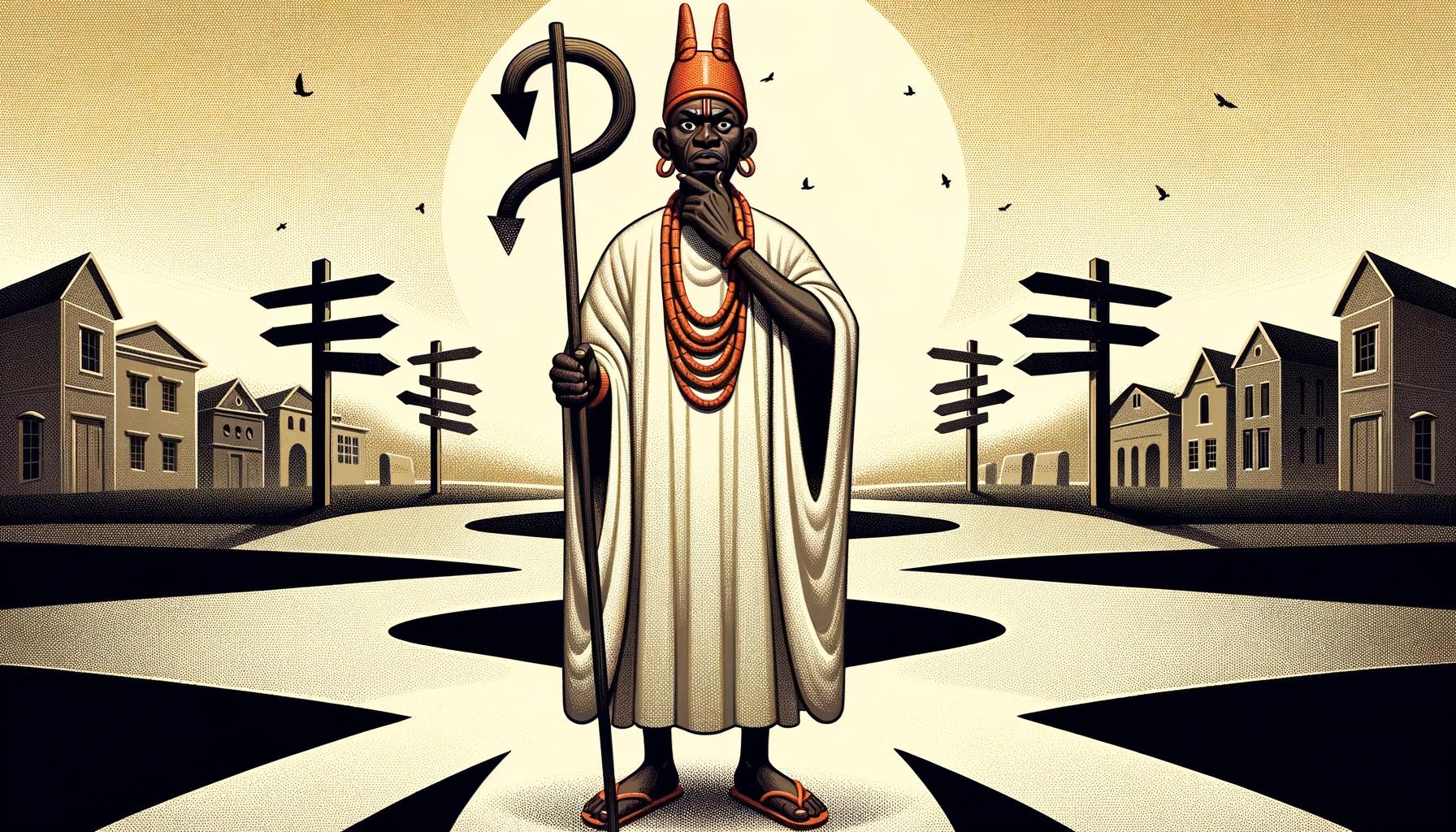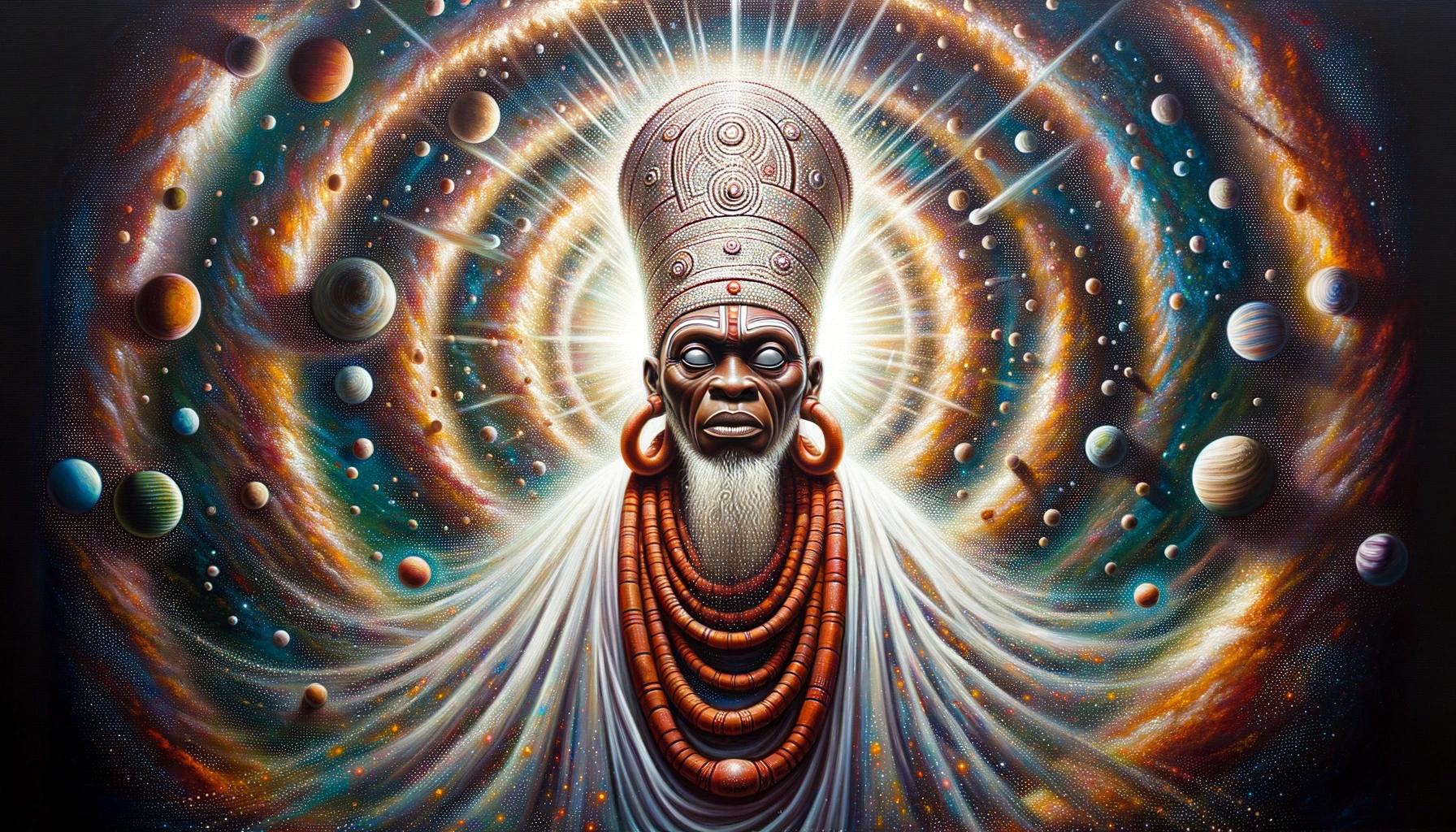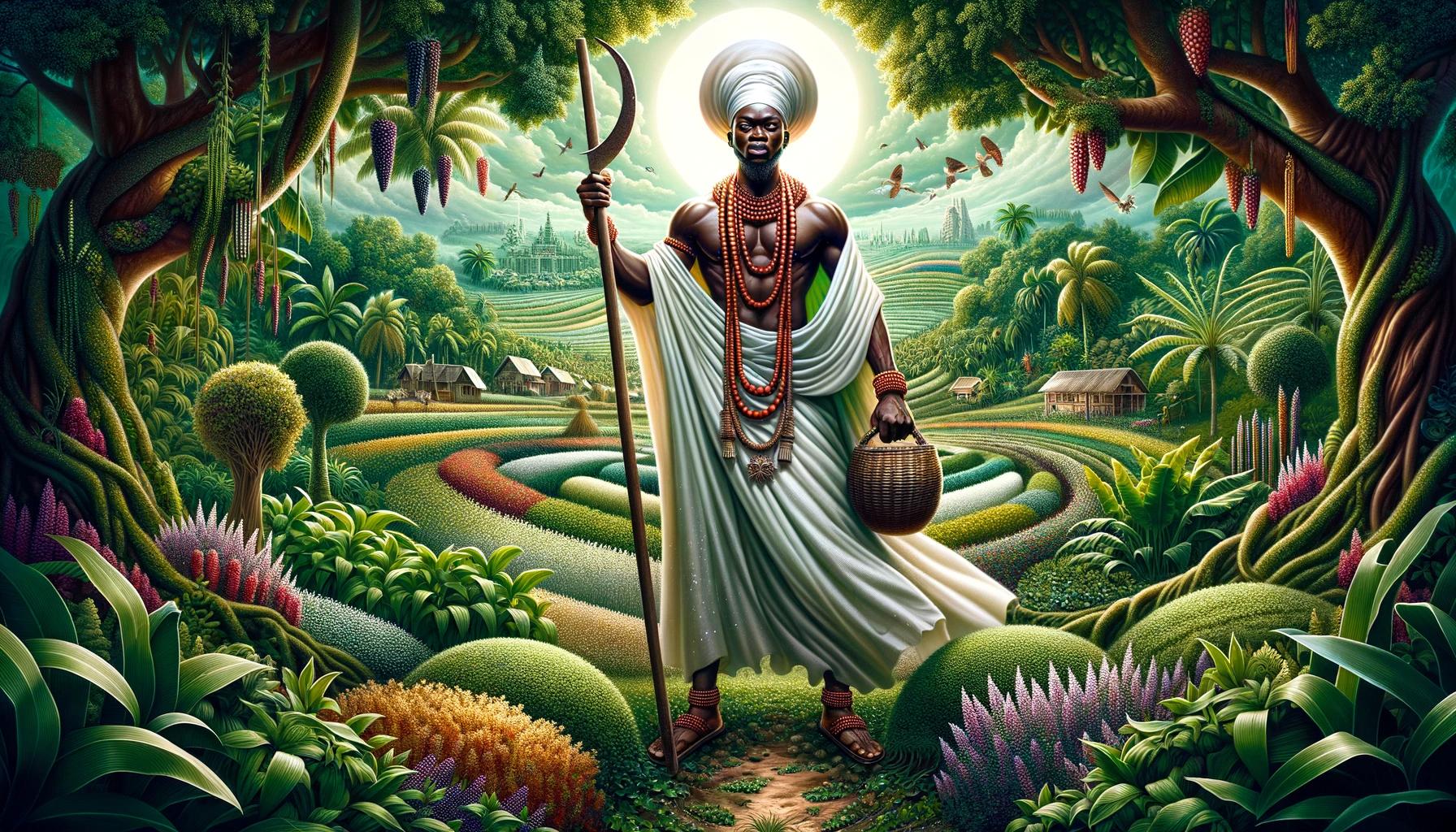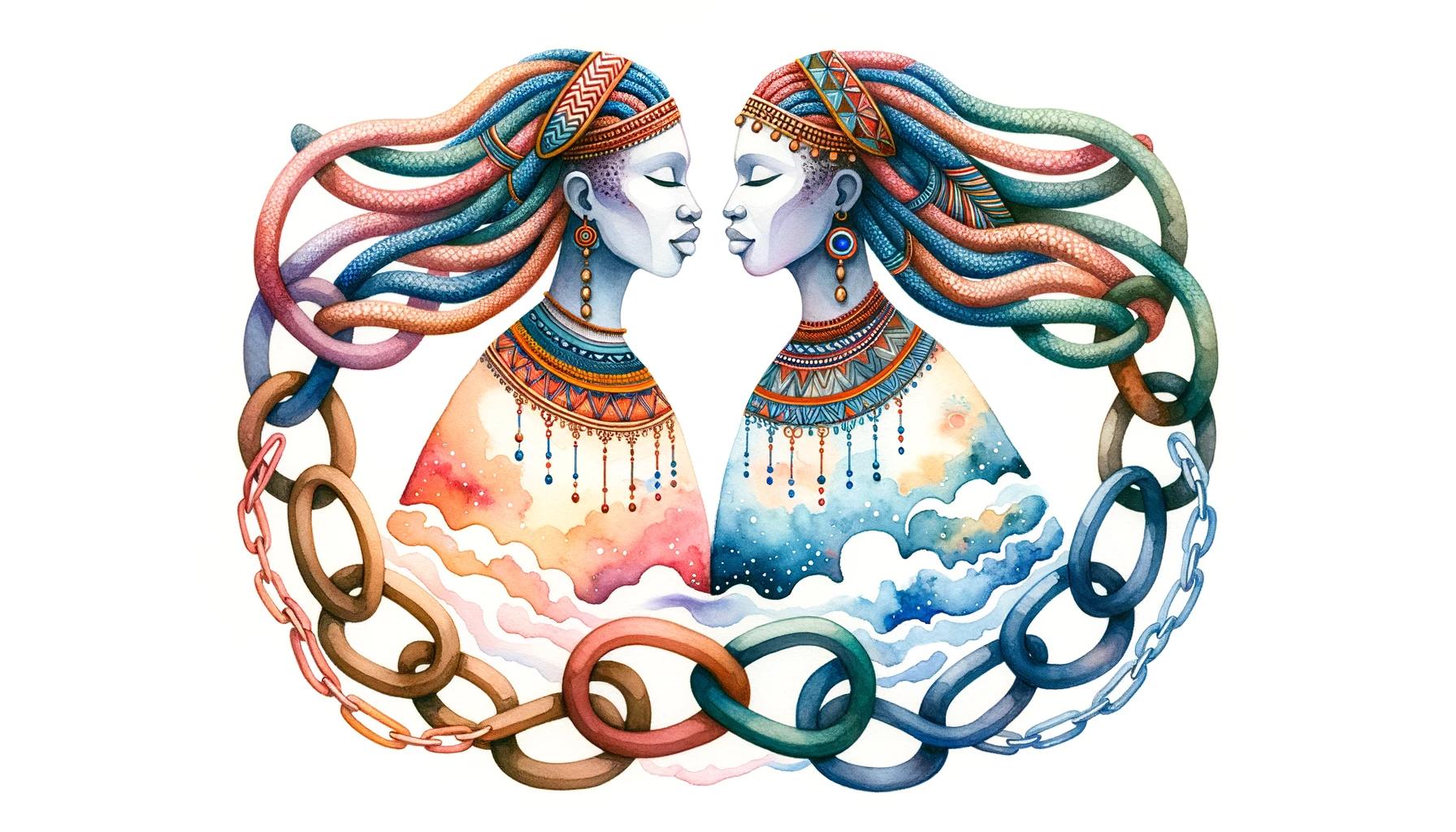Osoosi God: The Divine Hunter and Judge in Yoruba Mythology
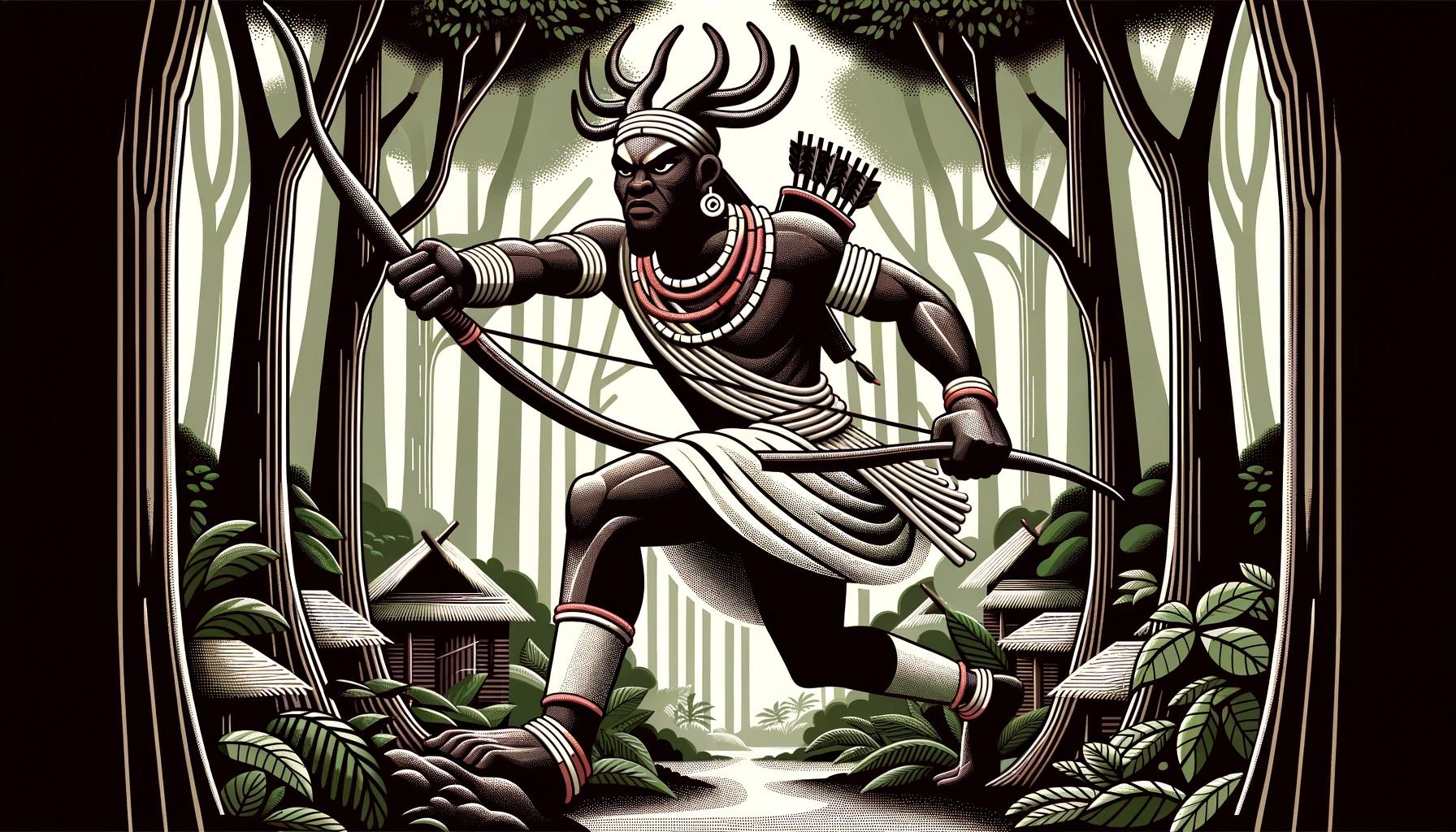
Osoosi god, an important figure in Yoruba mythology, is widely known as the divine hunter and judge. Within the context of Yoruba religion, Osoosi holds significant symbolism and attributes representing hunting and justice.
This article explores the origins and beliefs of the Yoruba religion, the role of Orishas in Yoruba mythology, and delves into Osoosi’s cultural importance, associations, and symbolic significance. Additionally, it explores Osoosi’s wisdom and guidance sought by those seeking advice and offers a glimpse into the rituals and offerings dedicated to this revered deity.
The Yoruba Religion and Orishas
The Yoruba religion is a rich and ancient tradition with deep roots in West Africa. It encompasses a complex system of beliefs and practices centered around the worship of various deities known as Orishas.
Origins and Beliefs
The Yoruba religion traces its origins to the Yoruba people of Nigeria, Benin, and Togo. It has evolved over centuries, blending indigenous African beliefs with influences from Islam and Christianity brought by European colonization.
Central to Yoruba belief is the concept of Olodumare, the Supreme Deity, who created the universe and everything in it. Olodumare is often seen as distant and inaccessible, so the Orishas serve as intermediaries between humanity and the divine.
Role of Orishas in Yoruba Mythology
The Orishas are revered as divine beings with unique powers and personalities. They are associated with various aspects of human life, such as nature, wisdom, love, fertility, and justice. Each Orisha has their own ceremonies, rituals, and offerings.
Orishas are believed to have once walked the earth as human beings, and through their exceptional qualities and actions, they ascended to the status of divine beings. They are seen as protectors and helpers, guiding and influencing the lives of their devotees.
Among the most well-known Orishas are Eleguá/Eshu, Obatalá, Changó, Ogún, Ochosi, Yemayá, Ochún, and Orula. They each play a distinct role within Yoruba mythology, and their worship is central to the religious practices of the Yoruba people.
- Eleguá/Eshu: The trickster god associated with crossroads, communication, and new beginnings.
- Obatalá: The creator god and symbol of purity, wisdom, and peace.
- Changó: The god of thunder, fire, and masculinity, associated with power and passion.
- Ogún: The god of iron, war, and technology, known as the divine blacksmith and warrior.
- Ochosi: The god of hunting and justice, known for his keen aim and role as a divine detective.
- Yemayá: The goddess of the sea, maternal love, and fertility, revered as a nurturing and protective mother.
- Ochún: The goddess of love, beauty, and wealth, associated with sensuality and feminine power.
- Orula: The god of divination and wisdom, consulted for guidance and insight into the future.
These Orishas, along with many others, form a vibrant pantheon that reflects the diverse aspects of human existence and provides a framework for spiritual connection and guidance within the Yoruba religion.
Osoosi: The Divine Hunter and Judge
Osoosi’s Significance in Yoruba Mythology
Osoosi holds a significant role in Yoruba mythology as the divine hunter and judge. Revered for his unparalleled hunting skills, Osoosi is known to track and capture his prey with precision.
He is also revered as a fair and just judge who dispenses justice when needed. Osoosi’s importance lies in his ability to maintain balance and order in the natural and spiritual realms, ensuring harmony among the Yoruba people.
Attributes and Symbolism of Osoosi
Osoosi is adorned with various symbols and attributes that reflect his role and characteristics. He is often depicted carrying a bow and arrows, representing his hunting prowess, vision, and precision. The bow and arrows also symbolize his ability to impart justice with swift and accurate action.
Osoosi’s association with the wilderness and forests represents his connection to nature and his role as a guardian of the wild. Additionally, his association with mysterious and hidden knowledge symbolizes his wisdom and insight.
In Yoruba culture, Osoosi is revered as a powerful deity who embodies the qualities of hunting and justice. His significance extends beyond his hunting skills, as he plays a vital role in maintaining order and balance within the Yoruba cosmology.
Through his hunting abilities and role as a judge, Osoosi ensures the well-being and harmony of the Yoruba people.
Hunting and Justice in Yoruba Culture
In Yoruba culture, hunting holds significant cultural importance and is deeply intertwined with the religious beliefs and practices of the community. It is not merely a means of sustenance but is also seen as a sacred activity with spiritual implications.
Hunting is regarded as a way to connect with the natural world and the divine forces that govern it. The Yoruba people believe that successful hunting requires not only physical prowess but also the blessings and guidance of the Orishas, including Osoosi.
The Cultural Importance of Hunting
Hunting has been a central aspect of Yoruba culture for generations. It represents a symbiotic relationship with nature, where humans rely on the environment for survival, and in turn, respect and protect it.
The skills and knowledge associated with hunting are considered essential, not only for acquiring food but also for fostering discipline, patience, and the ability to navigate challenging situations.
Furthermore, hunting is seen as a rite of passage and a demonstration of bravery and skill.
It is often passed down through generations, with seasoned hunters imparting their wisdom and expertise to younger members of the community.
Justice and Osoosi’s Role as a Judge
Connected to the cultural significance of hunting is the concept of justice in Yoruba culture. Osoosi is revered as the divine judge, known for his impartiality, keen discernment, and wisdom. He plays a crucial role in maintaining balance and order within the community, ensuring that justice is served.
Osoosi’s role as a judge extends beyond earthly affairs. Devotees of Osoosi seek his guidance and intervention in matters related to personal conflicts, disputes, and injustices. They believe that Osoosi provides clarity and insight, enabling them to make fair and righteous decisions that align with the principles of justice.
It is through hunting, with its emphasis on precision, strategy, and ethical conduct, that Osoosi is intimately linked to the pursuit of justice. His abilities as a skilled hunter translate into his role as a diligent seeker of truth and fairness.
- Hunting has deep cultural significance in Yoruba culture
- It represents a connection with nature and divine forces
- Hunting skills foster discipline, patience, and problem-solving
- It is viewed as a rite of passage and demonstration of bravery
- Osoosi is revered as the divine judge in Yoruba culture
- He ensures justice and balance within the community
- Devotees seek Osoosi’s guidance for personal and communal conflicts
- Osoosi’s hunting skills translate into his role as a seeker of truth
Syncretization and Associations
In addition to its roots in Yoruba mythology, Osoosi’s divinity has influenced various syncretic religions, particularly in the context of Santeria and Afro-Caribbean religions.
It is worth exploring Osoosi’s presence in these belief systems and its relationships with other Orishas, such as Ogun and Olokun.
Osoosi in Santeria and Afro-Caribbean Religions
Osoosi holds an esteemed position in Santeria, a syncretic religion that emerged among the Afro-Caribbean diaspora in the Americas. In Santeria, Osoosi is often associated with Saint Norbert. This syncretization arose from the blending of Yoruba religious beliefs with Catholicism during the era of slavery.
Devotees who worship Osoosi in Santeria honor him as the virtuous hunter and seek his guidance in matters of justice and spiritual protection.
Relations with Other Orishas, such as Ogun and Olokun
Within Yoruba mythology and its syncretic traditions, Osoosi maintains intriguing connections with other Orishas, such as Ogun, the god of iron, and Olokun, the deity of the ocean.
These relationships symbolize the interplay between justice, warfare, and the vastness of nature. Scholars and practitioners have examined the intricate dynamics among these Orishas, highlighting how their collective powers and associations shape the cosmology of Yoruba religion.
Osoosi’s Bow and Arrow: Symbolism and Meaning
The Significance of Osoosi’s Bow and Arrow
Osoosi, the divine hunter and judge in Yoruba mythology, is often depicted with his powerful bow and arrows. The bow and arrow hold great symbolism and meaning in relation to Osoosi’s character and role in the Yoruba culture.
The bow represents precision, focus, and intention. It showcases Osoosi’s expertise as a skilled archer, allowing him to hit his targets with accuracy and efficiency. This symbolism reflects Osoosi’s ability to bring justice and maintain order in the world, ensuring that only the deserving receive their due.
On the other hand, the arrow embodies Osoosi’s decisive judgment and swift action. It represents his role as a divine judge who shoots his arrows to right the wrongs and restore harmony.
The arrow also serves as a metaphor for Osoosi’s ability to penetrate deep into the heart of matters, uncovering truth and unveiling hidden intentions.
Osoosi’s bow and arrow are not merely physical tools; they signify his power, authority, and unwavering dedication to upholding justice in the Yoruba belief system.
They highlight his role as the divine hunter, diligently seeking out balance and rectitude in the world.
Rituals and Offerings to Osoosi
Rituals and offerings play a significant role in the veneration of Osoosi. Devotees honor and seek the favor of Osoosi through various ceremonies and dedicated offerings.
During rituals, participants may offer animal sacrifices, such as a goat or a rooster, to symbolize Osoosi’s association with hunting and the sustenance it provides.
These sacrifices serve as a way to show appreciation and to establish a spiritual connection with Osoosi, seeking his protection and guidance.
Other offerings to Osoosi may include specific foods, plants, or artifacts associated with hunting, such as feathers, animal skins, or herbs.
Each offering carries symbolic significance and is made with reverence and respect.
Additionally, devotees may engage in prayers, chants, or dances to invoke the presence of Osoosi and seek his aid in matters related to justice, guidance, or protection.
These rituals and offerings serve as acts of devotion and affirmation of faith in Osoosi’s wisdom and ability to administer righteous judgment.
Overall, the rituals and offerings dedicated to Osoosi not only reinforce the bond between the devotee and the deity but also provide a tangible way to show reverence and receive blessings from the divine hunter and judge.
Wisdom and Guidance of Osoosi
As a revered deity in Yoruba mythology, Osoosi is not only known as the divine hunter and judge but also revered for his wisdom and guidance. His connection to Ifa, the Yoruba system of divination and spiritual guidance, enhances his role as a trusted advisor and source of profound knowledge.
Osoosi’s Wisdom and his Connection to Ifa
Osoosi is closely associated with Ifa, which is rooted in the belief that the orishas communicate with humans through divination. Ifa priests, known as babalawos, consult the sacred Orunmila-Ifa oracle to gain insight and guidance from the orishas, including Osoosi.
Through this connection, Osoosi’s wisdom is sought to make important life decisions, solve problems, and navigate challenges.
Seeking Guidance and Advice from Osoosi
- Seeking Osoosi’s guidance typically involves a ritualistic approach that begins with offerings to establish a sacred connection. Devotees may present items such as honey, kola nuts, or tobacco as offerings to honor and appease Osoosi.
- Prior to seeking guidance, it is important for individuals to cleanse themselves spiritually and mentally. This cleansing process, often involving a ritual bath, clears any negative energy or distractions, allowing for a deeper connection with Osoosi.
- During consultations, a skilled diviner, such as a babalawo, interprets the messages and symbols revealed through Ifa divination. These messages are believed to convey Osoosi’s wisdom and advice, providing insights, solutions, and paths to follow.
- Osoosi’s guidance extends beyond personal matters and can also apply to broader societal issues. In Yoruba culture, individuals may turn to Osoosi for guidance on matters related to justice, fairness, and ethical dilemmas.
In conclusion, Osoosi’s wisdom and guidance play a significant role in Yoruba spirituality. Through his connection to Ifa and divination, Osoosi offers profound insights and advice, assisting individuals in their personal, spiritual, and societal journeys.
.

